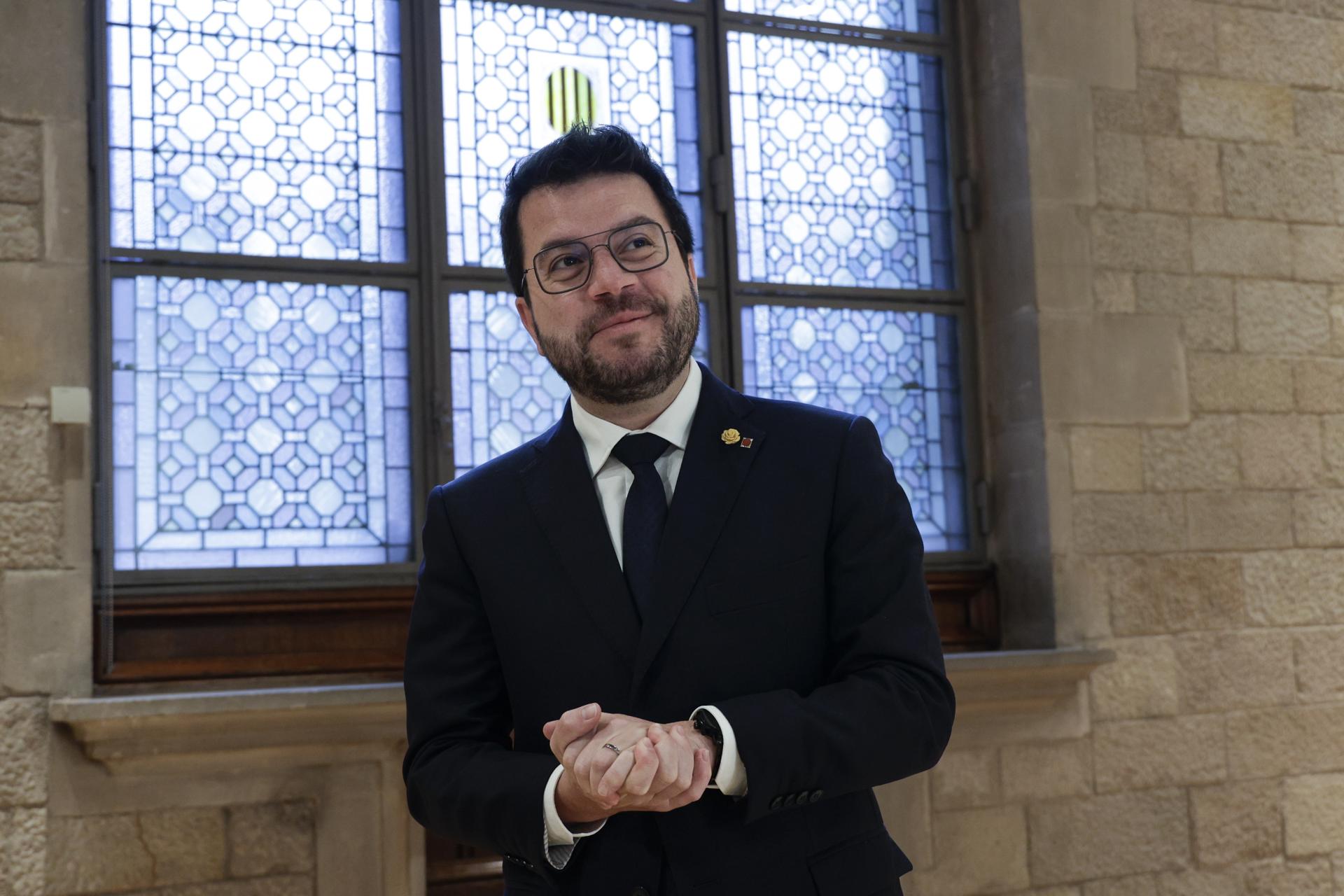The Clarity Agreement that the Catalan government has been trying to push forward for months is finally underway. The president of Catalonia, Pere Aragonès, has, this Tuesday, explained a development process for what he sees as the best way to reach a solution to Catalonia's political conflict with the Spanish state. It is a "circular" process, as he explained it, which begins and ends with the Catalan government, involving an academic council that assumes a clear role and will have to mediate a social debate which, in the words of Aragonès, will "define the rules of the game". "A solution that involves empowering citizens and is based on the most basic values of our democracy, which gives a voice to Catalans in the most inclusive way", he affirmed.
The Catalan government will shortly formulate a series of questions about the different democratic mechanisms that, in the executive's opinion, should allow the conflict between Catalonia and the state to be overcome. The questions will be, as he outlined, "concise" and "indispensable to start this process", based on an essential consensus of 80% of the population who believe in the need for a referendum, and which, as Aragonès has recalled, includes the voters of the pro-independence parties, but also large numbers of supporters of the Comuns and the PSC.
Academic council
From these questions, the first phase will focus on an academic council, which will begin work in April under the coordination of professor Marc Santjaume of the Universitat Pompeu Fabra, with representatives from the political science and law fields from different universities around the country. This council will be responsible for making a first report that will provide answers to the questions raised by the government. It will have to be an open, non-conclusive report that will then be subject to debate in society.
One of the first areas of debate in this report will be the political one, with a table consisting of the parties that have parliamentary representation, which will come into operation after the municipal elections and to which all the parties will be invited, except for Vox.
In parallel, a citizens' debate - involving unorganized members of the public - and a sectoral debate - for organized civil society - would come into operation. The citizens' debate would use focus group methods at the level of Catalonia's eight territorial vegueries, which will be held on a specific day, with a hundred people chosen using a draw to represent the citizens of the territory.
Final report
To conclude all this debate with its different branches, the academics will then draw up a final report, which will serve as a basis for the government to approve a "Catalan proposal". The final decision will therefore be the Catalan government's, and will serve as a basis for negotiations with the Spanish state. Although at present, only the government endorses this route, Aragonès has avoided raising the possibility that other parties will fail to support his proposal.
The promoters of the proposal insist that it has nothing to do with previous proposals, such as the Llibre Blanc or White Paper, drawn up in 2014 on behalf of the government of Artur Mas, given that the aim is to draw up a single very specific, decisive and executive report. On the other hand, they do compare the proposal with experiences such as the one carried out in Canada, to prepare the country's Clarity Act, or in Iceland, for the process of the developing that country's constitution.
Aragonès on how the Clarity Agreement process will start: "The government will formulate a series of questions [directed at the Catalan public] that it will make known very soon, about the different democratic mechanisms that have to be able to contribute to resolving the political conflict with the state."

